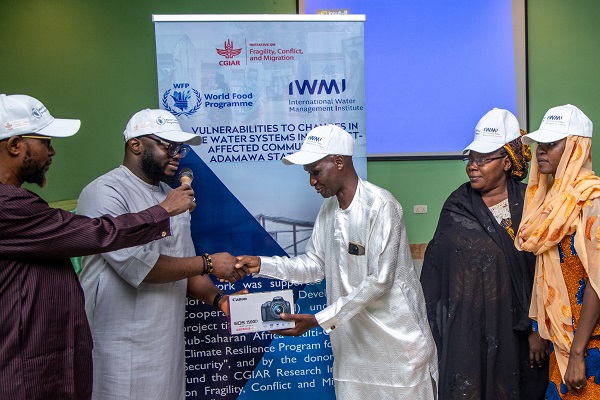In a groundbreaking study titled “Vulnerabilities to Changes in the Water System of Conflict-Affected Communities in Adamawa State,” Dr. Robert Inyeneke of Alex Ekwueme Federal University, Ndufu Alike, and Dr. Tafida Ahmadu of Modibbo Adama University Yola have highlighted the severe water insecurity faced by residents in Adamawa.
The findings reveal that many people are forced to drink water from the same sources as animals, including pigs, due to the lack of safe water sources.

Impact of Climate Change and Conflict
The study points to climate change as a significant factor exacerbating water insecurity in Adamawa, compounded by ongoing conflicts such as insurgency and communal clashes. These challenges make the water systems in these communities increasingly vulnerable.
Key Recommendations for Improving Water Infrastructure
The researchers have made several crucial recommendations to address the water crisis in Adamawa:
- Construction of New Boreholes: For communities without functioning boreholes, the construction of new ones is essential.
- Rehabilitation of Existing Boreholes: Many boreholes that are no longer functional need urgent rehabilitation.
- Rainwater Harvesting: Providing rainwater harvesting storage facilities is vital for communities with severe water scarcity.
- Alternative Energy Sources: To power boreholes, exploring new energy sources is recommended, as electricity, petrol, and diesel are often inaccessible for many residents.
- Conflict Resolution: Strengthening local capacities to resolve water-related disputes, particularly between farmers and herders, is necessary to maintain peace and ensure equitable water distribution.
Support from Development Partners
The study was conducted with the support of several prominent development partners, including the International Water Management Institute (IWMI), the World Food Programme (WFP), and the Consortium of International Agricultural Research Centre (CGIAR). These organizations collaborated to validate the research findings and support efforts to mitigate water insecurity in Adamawa.
Methodology and Data Collection
The researchers employed a Photo Voice approach, where trained volunteers inspected local water sources and documented their findings through photos and videos. This visual evidence highlighted the appalling conditions of the water sources and supported the call for urgent improvements.
Conclusion: A Call to Action for Water Security
The study underscores the critical need for immediate action to improve water infrastructure in conflict-affected communities in Adamawa State. By implementing the recommended solutions—constructing new boreholes, rehabilitating existing ones, providing rainwater harvesting facilities, and using alternative energy sources—local and national authorities can significantly enhance water security. Additionally, strengthening mechanisms for resolving water-related conflicts will ensure sustainable and equitable access to safe water for all residents.
By addressing these urgent issues, community leaders and government authorities can help alleviate water insecurity and improve the quality of life for people in Adamawa State.
Support InfoStride News' Credible Journalism: Only credible journalism can guarantee a fair, accountable and transparent society, including democracy and government. It involves a lot of efforts and money. We need your support. Click here to Donate
